This story is published in partnership with KCET / PBS SoCal.
On Texas’ Gulf Coast, new and seasoned commercial fishers can be found along the 350 miles of gray-blue coastal glory. Spanning from South Padre Island and the Rio Grande Valley, to Beaumont and Louisiana’s border, the Gulf Coast feeds the appetites of regional Southern seafood enthusiasts, and has been home to the anglers who catch the bass, red snapper and catfish that end up on dining room and restaurant tables throughout Texas.
Captain Frederick McBride is one of these commercial fishermen. But unlike his peers, the Houstonian’s presence out on these waters is unique: he believes he’s the only Black commercial fisherman on the Texas coast.
“They’re all white,” says McBride of the local fishermen. “Fishing is just so fulfilling. I want more Black people to experience that.”
For McBride, who goes by Captain Fred, fishing isn’t just a job; it’s a love story. The reserved fisherman began catching fish at the age of four as a recreational activity. Growing up in Third Ward, Houston—a neighborhood full of rich Black history—fishing wasn’t the most common activity among his peers, but it did run in his family.
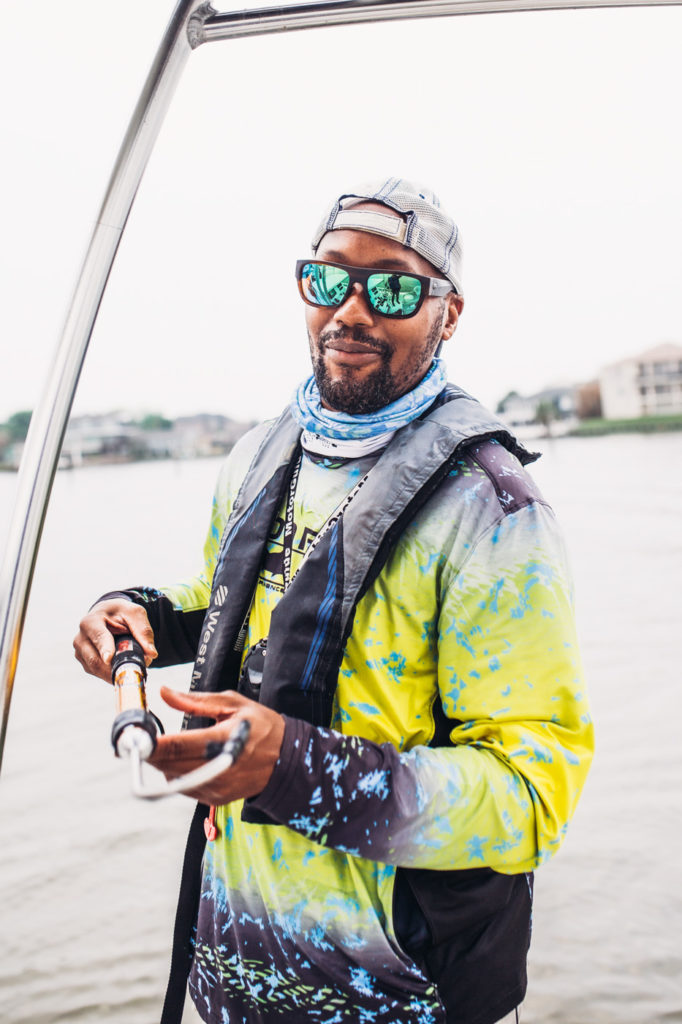
“My grandfather was a country boy,” says McBride. “Even though he was a school principal, he just loved fishing. My dad was in and out of our life, and he loved to fish as well, but my grandfather was a person I always tried to emulate. He took me and my brother fishing, and I just loved being outside.”
Also fond of music, McBride attended the historically Black university, Texas Southern University, where he earned a master’s degree in the subject. For eighteen years, the educator has been a Houston Independent School District orchestra teacher for grades two through five, but fishing is the true constant of his life.
“The catching aspect, the eating aspect, as well as being outside with nature,” says McBride. “It’s all so meaningful for me.”
Often the only Black commercial fisherman on the shores, along with his love of fishing, McBride needs the waters as much as they need him. He started competitive fishing with other anglers up and down the coast, including in the neighboring state of Louisiana. He competed in the Redfish Tournaments, one of the most competitive angler tournaments along the coast. Between 2009 and 2015, the captain also competed in Galveston Redfish Series, Xtreme Redfish Series, Texas Redfish Series, Texas Trout Series, and the Gulf Coast Troutmaster. Often ranking in the top ten—sometimes the top five—and a first place win in a local fishing guides tournament, McBride’s skills were impressive.
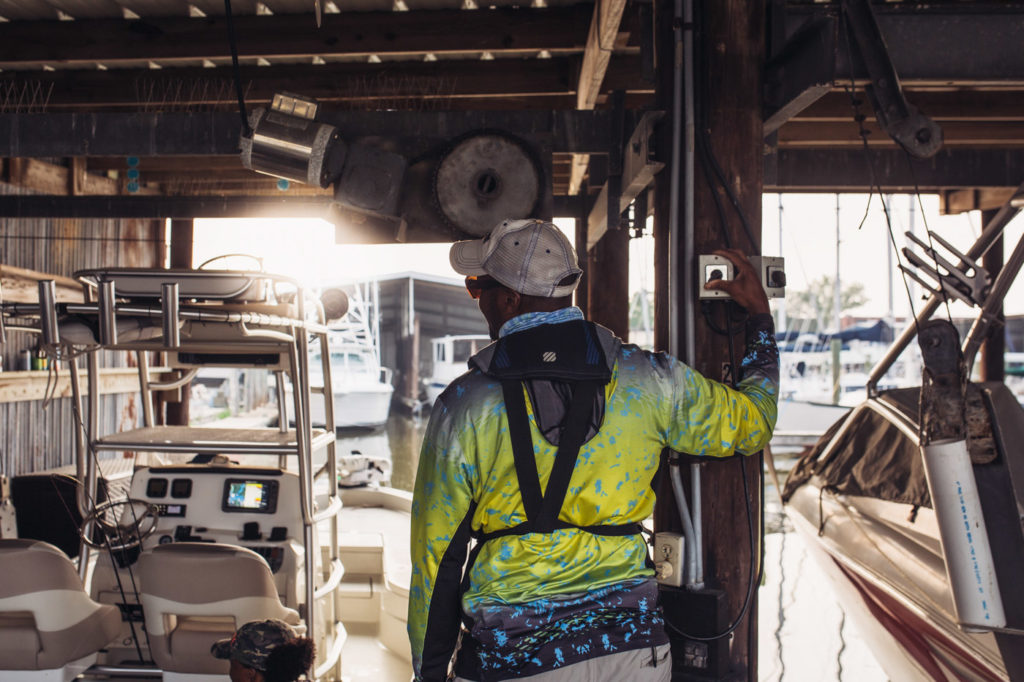
After several years, it hit him that fishing could be more than a recreational or competitive activity; it could also be a career. In 2015, McBride ultimately stopped competing, opting to become the musical director at his church. And in 2018, he opened Captain Fred’s Seafood, which allows him to sell his catch to small grocery stores, restaurants, and other retailers.
“I’d never really thought about doing any commercial fishing, and the reason why is because I’d never been exposed to anything like that,” recounts McBride. “Nobody ever told me, ‘You could probably make some money doing commercial fishing.’”
McBride loves the freedom of fishing—the quiet solitude of focusing on the day’s catch, the opportunity to learn and study different fish along the coast. He’s also well aware of the oddity of his field. While he grew up with Black family members recreationally fishing, those who seek a commercial license—like he did—tend to be white.
“For the past two years, I have been really getting going, but so many of the people I see continue to be white,” he tells me.
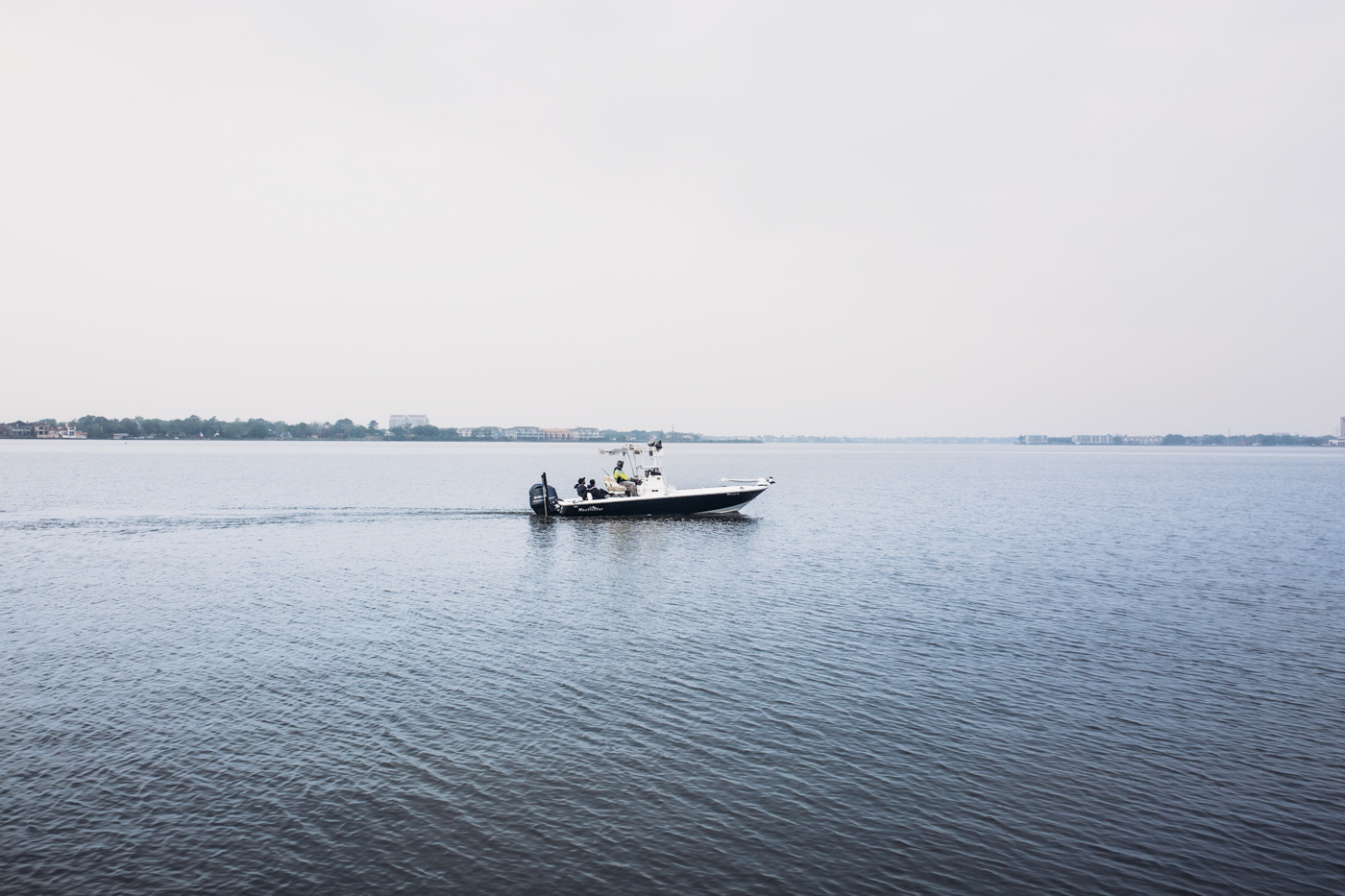
The data supports McBride’s experience. In a North American Journal of Fisheries Management paper published in 2001, one of the few pieces of research that explores the experiences of Black anglers, researchers found white males were more likely than any other race and gender to participate in licensed recreational fishing, and white men were more likely than African American or Latino men to have started fishing at an earlier age, to have more years of fishing experience, to live in a household with a powerboat, to fish more days from a boat, to belong to a fishing club or organization, to fish in tournaments, and to have less varied species preferences.
“There are also cultural differences with how people approach natural resources,” lead researcher and Mississippi State University’s Human Dimensions professor Kevin Hunt says of his study. “White people have this individualistic culture that’s so different from African Americans. Black fishermen often make decisions based on what’s going to help the group. African American fishers kept more of their catch, they would keep different species, things like that.”
The data, however, is both complicated and limited. During his career, Hunt has largely focused on recreational fishing, the entry point for most fishermen. He and other researchers have found sparse opportunities to study race in commercial fishing, including producing data that examines just how many recreational, competitive and commercial Black fishers exist, in large part because of limited funding opportunities from organizations that don’t value examining demographic trends.
“There are these theories I have from my work on recreational fishing, but very few state leaders are willing to fund the types of study that allow us to get the sample sizes we need to really learn more about these communities,” says Hunt. “And that’s unfortunate.”
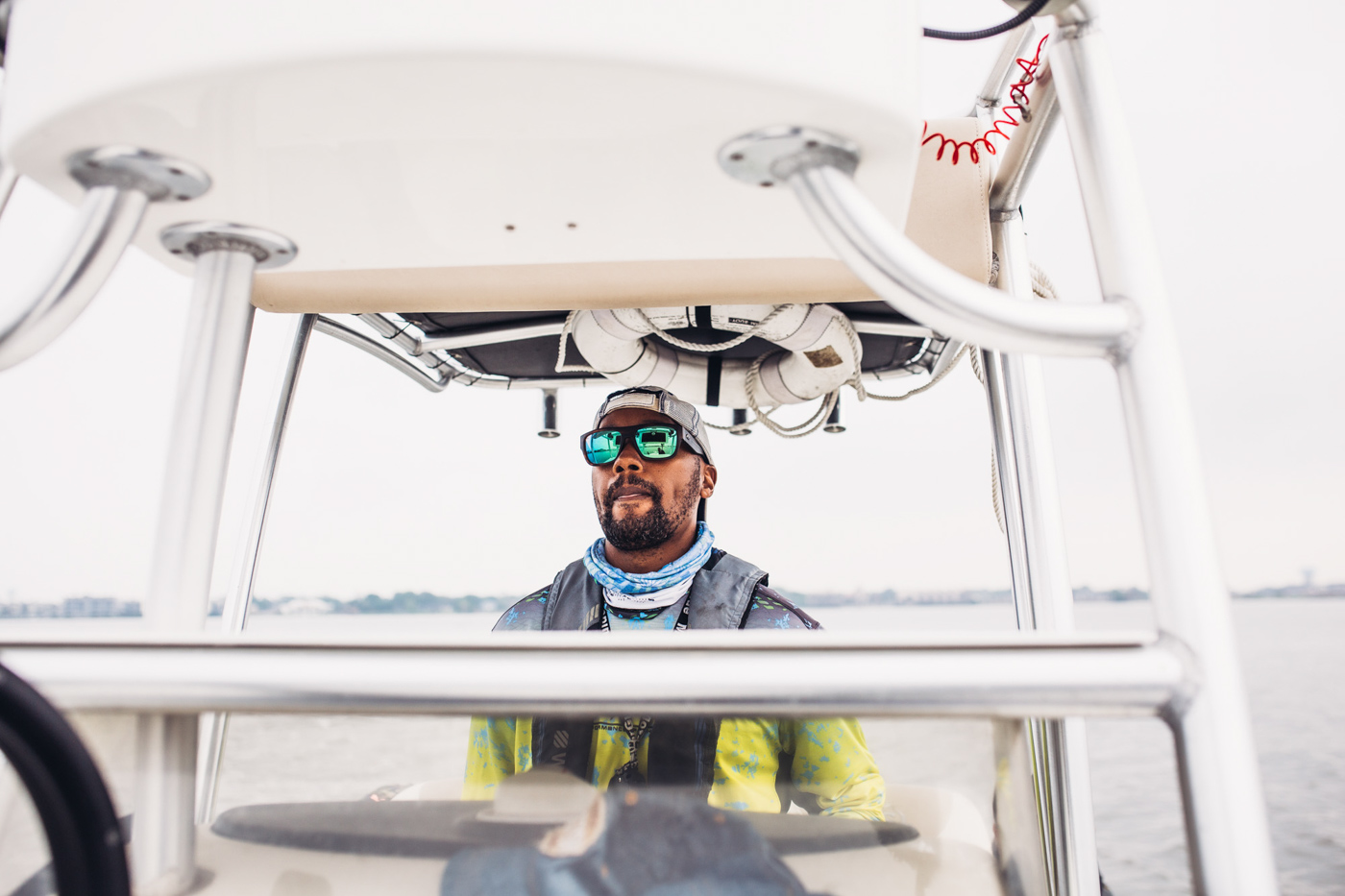
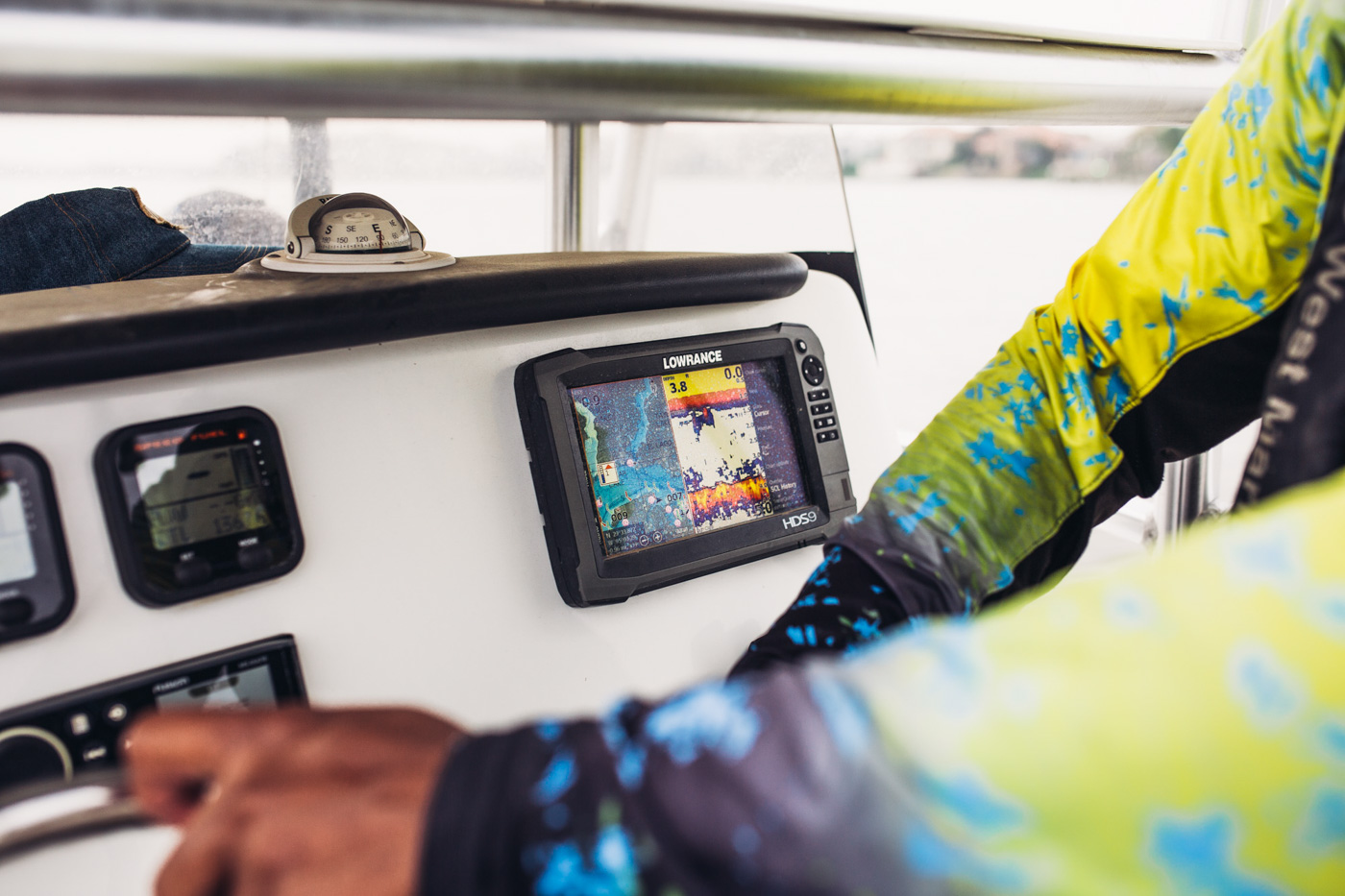
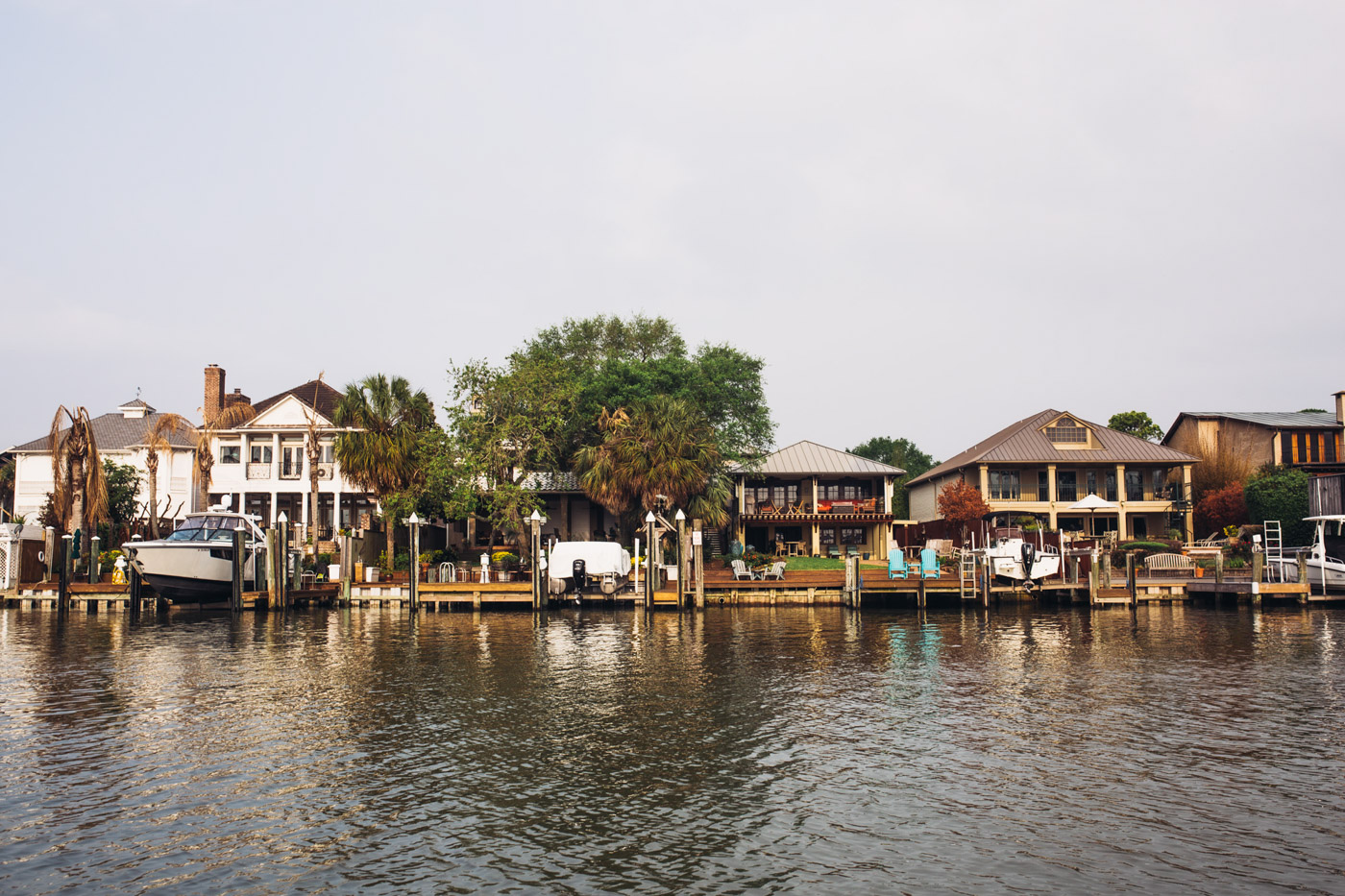
The legacy of Black fishermen dates back to pre-enslavement in West Africa. Fishers along Ghana’s Gold Coast and the West African coast—particularly the Fante, Minu and Kru people—were revered for their maritime and fishing skills and traditions. Many enslaved people who forcibly migrated from West Africa came through Ghana’s Gold Coast, and the oral traditions that were taught to generations of West African fishermen continued in the United States. Black fishermen helped shape and define fishing culture in the South, and today, along the coasts of Georgia and South Carolina, the Gullah Geechee people continue to preserve fishing traditions against external challenges like climate change and rapid gentrification. African Americans who descend from enslaved people have made a living on fishing, including Black fishers on the Louisiana Gulf Coast who fish for shrimp and oysters, as well as Black fishers along the Mississippi River and the southern Gulf Coast. Despite centuries of knowledge and tradition, the quantity of Black fishermen have dwindled over the years, leaving professionals like McBride largely on their own.
Both McBride and Hunt believe the challenge of getting more anglers in the field revolves around exposure.
“As far as people trying to get into this industry, African Americans have to know that it even exists,” says McBride. “I believe so many people just don’t have a clue that this stuff right here exists.”
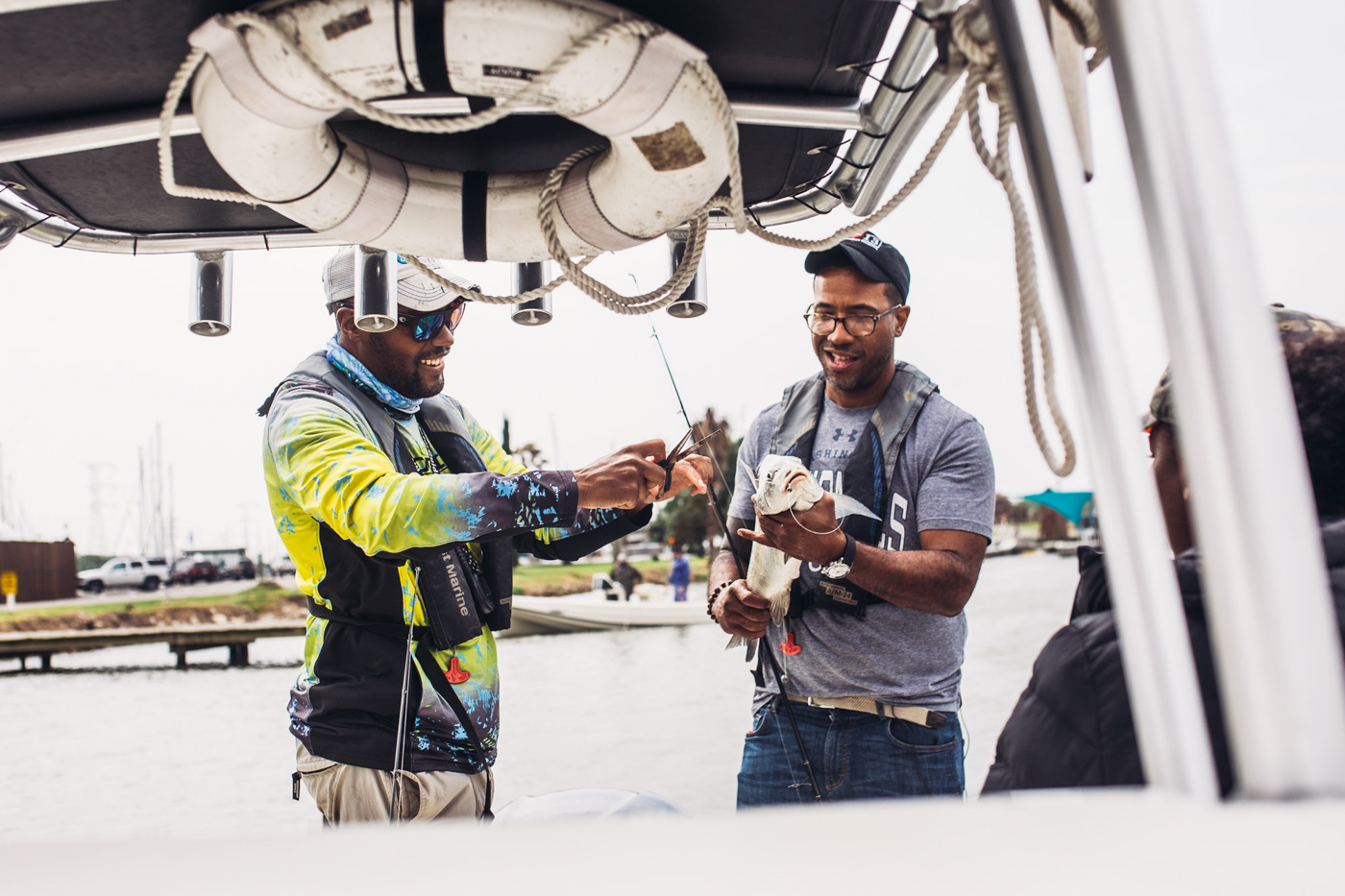
Hunt began competitive fishing in regional tournaments about fifteen years ago. Although he met more Black Americans in those competitions, he found that many of them struggled to find ways to get more young Black Americans exposed and engaged.
“One of the challenges is that in the inner city—which is where I grew up—fishing is just not something that’s present,” says McBride. “I’ve been teaching in inner city schools for the past eighteen years. And these kids, they don’t know anything about fishing or anything like that.”
Exposure isn’t the only barrier, however. How commercial fishing operates—and who gets to do so and where—often has to do with access and privilege. The Coast Guard classifies deep-sea fishing as fishing anywhere that’s more than nine nautical miles offshore. In the Galveston Bay, fishers will find smaller species, and offshore fishing, according to McBride, tends to yield more edible fish.
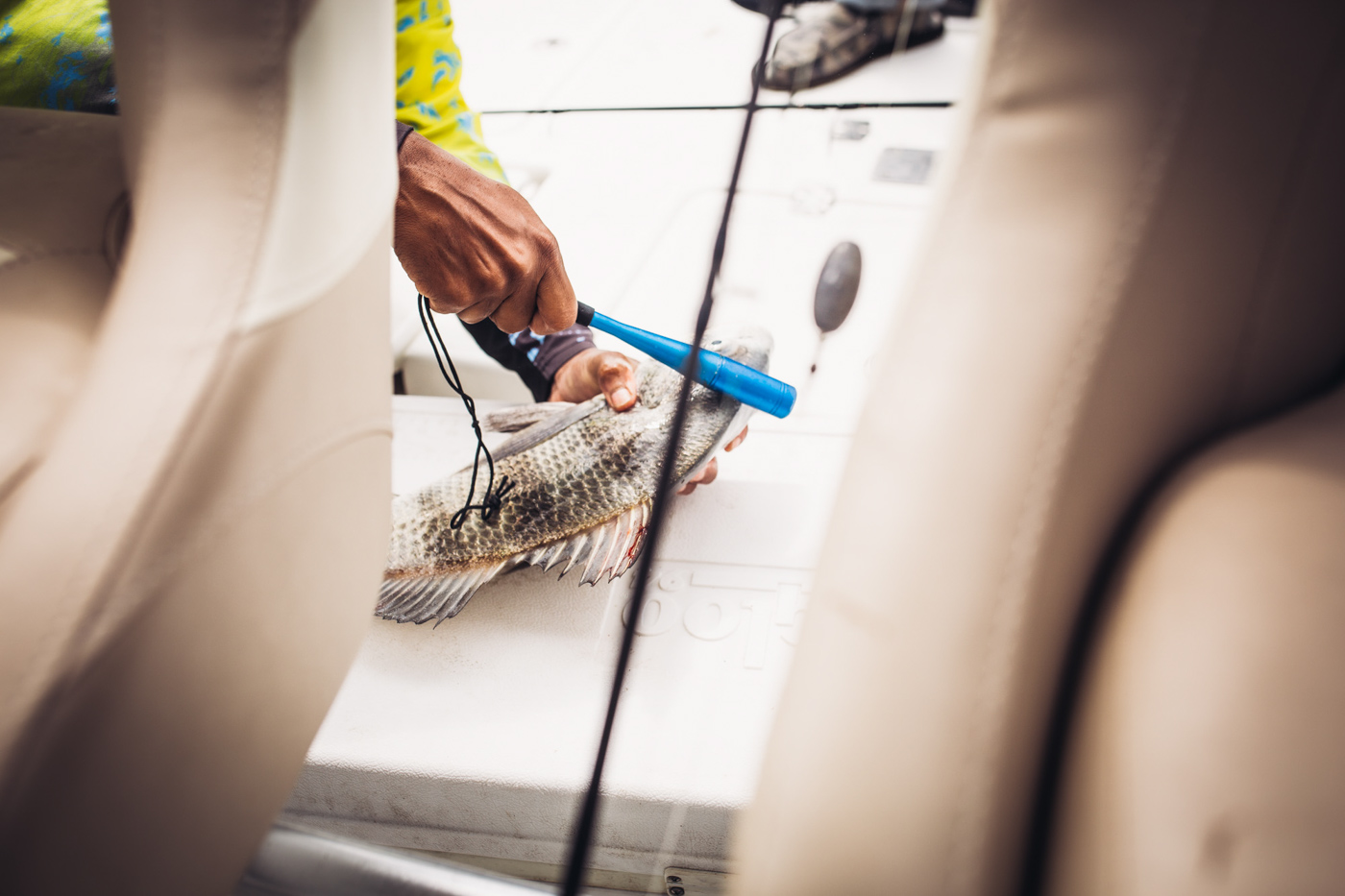
Bay fishing isn’t regulated as heavily as offshore fishing. Fishers will primarily catch black drum, sheepshead or flounder. Two of these species—sheepshead (must be at least fifteen inches long) and black drum (which must be fourteen inches)—have “no limits,” meaning anglers can keep as many of these fish as they catch. Sheepshead are a bit notorious, as they often steal bait, deflect being caught, and are difficult to clean. Sometimes considered “trash fish,” they are also known as “convict fish” thanks to the black stripes that line their backs. Though many white fishermen avoid them—and white chefs avoid cooking them—renowned Houston chef Jonny Rhodes uses them to make a culinary masterpiece by cooking them over embers and pairing with ramp ranch, caramelized tomato, and dill pickles.
As a commercial fisherman, McBride navigates the complicated waters of what’s lucrative enough to catch and sell. He can only keep thirty flounder per day, meaning there’s not much money to be made in this area. The licensing process is also complex, particularly for people of color. In Texas, regulators currently offer a limited edition Texas Commercial Fisherman Finfish license. But the license is closed to those who had a fishing license before Texas established the Texas finfish license; therefore, if you don’t know anyone who has a license, you won’t have access to that license. McBride initially had to lease a license from another commercial fisherman. Many Black anglers who only know of recreational fishers and don’t have a connection with a commercial fisherman or group of fishermen struggle to gain access to the complex and expensive (a finfish license is $380 for Texas residents) world of licensing. It’s here, McBride says, where many Black Americans who might want to advance their fishing opportunities fall through the cracks.
“Without that Texas finfish permit, you cannot legally go over a recreational limit,” says McBride.
Once anglers jump through the hoops of securing a fishing license, the annual salary is also a deterrent for some. McBride, however, has found his own way to make money that he’s happy with.
“The offshore side of things is where I know I’m going to make more money,” he says. McBride states, on the high end, commercial fishers earn around $50,000. Many fall within $35,000 to $50,000, and that’s often after licensing, insurance, and equipment expenses. During a diversity recruitment event held to bring more Black students into an agricultural or natural resources degree program in the Mississippi Delta, Hunt found that undergraduate students’ parents were less than enthusiastic about their children pursuing outdoor activities in exchange for more seemingly lucrative careers like law or medicine.
“When you’re trying to get African American kids from the Mississippi Delta into an agricultural natural resources field—that’s not what their parents envisioned,” says Hunt. “There’s this desire they have for their kids to disconnect themselves from agricultural roots, to break out of that history, and be successful.”
The price of fishing equipment has also increased, and isn’t helpful when trying to attract people from underrepresented groups. “Fishing equipment gets more expensive and more expensive,” says Hunt. “White people in higher income groups can afford that. But that further perpetuates the problem because you’re trying to attract minorities who may be in a lower income bracket. So the first thing they do is look at it and say, ‘A fishing rod is $100? Nevermind.’”
The overarching barrier that intersects all of these issues is pure American racism. Hunt points to the legacy of violence against Black Americans in the outdoors, particularly during slavery. Painful memories of Black people going missing in the outdoors, and racist violence in rural and outdoor spaces is, according to Hunt, an understandable deterrent.
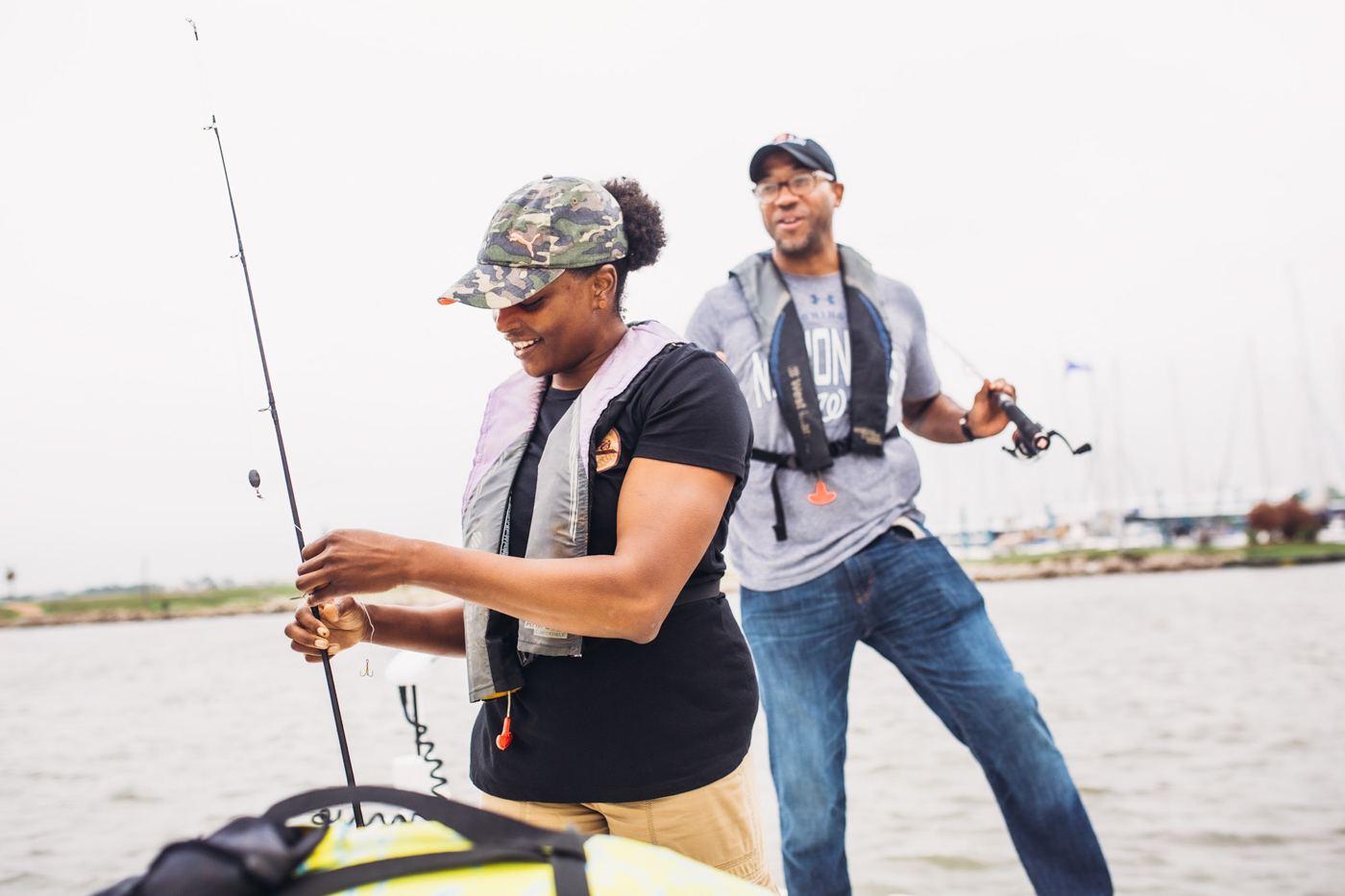
“There’s this narrative that it’s a white man’s sport,” says McBride. “And if you tell a Black person to go and get out on this boat with other white men around, and they’re by themselves—that’s not exactly convincing to a person of color who’s new to this.”
Although McBride lives in one of the largest and most diverse metropolitan cities in the country, he’s found himself subject to racism as well. At a tournament in Port Arthur, Texas, McBride brought his Eric Simmons Custom Boat—considered one of the top boats in the industry—that he “worked his tail off” to get. A white participant greeted McBride and initially complimented his boat. He then proceeded to tell McBride that his mother had told him two people have boats like that: people who are drug dealers, or people who are doing something illegal.
“I told him that I’m just a poor, broke school teacher, and I’ve never spent a day in jail in my life,” says McBride.” The man, embarrassed, apologized. But for McBride, the damage was done.
McBride has decided to move forward from these degrading experiences by shaking them off, but he and others are working to demystify and destigmatize the world of fishing to Black Americans and other underrepresented groups. For example, the Recreational Boating & Fishing Foundation (RBFF) launched its “Take Me Fishing” campaign to increase race and gender diversity in recreational fishing, the International Federation of Black Bass Anglers (IFBBA) has worked to build a hub for Black bass fishers around the nation to convene and remain connected, and Ebony Anglers has provided a space for Black women to enter the competitive fishing community with women who share similar personal and professional experiences.
For McBride, getting the fish on the table for his community members makes it all worth it.
“The people in Houston love buying the fish from me because I actually catch it that day,” McBride says. “There’s just something to be said when you can catch the fish that day and then bring it to their restaurant that evening or afternoon. You can’t replicate that goodness.”





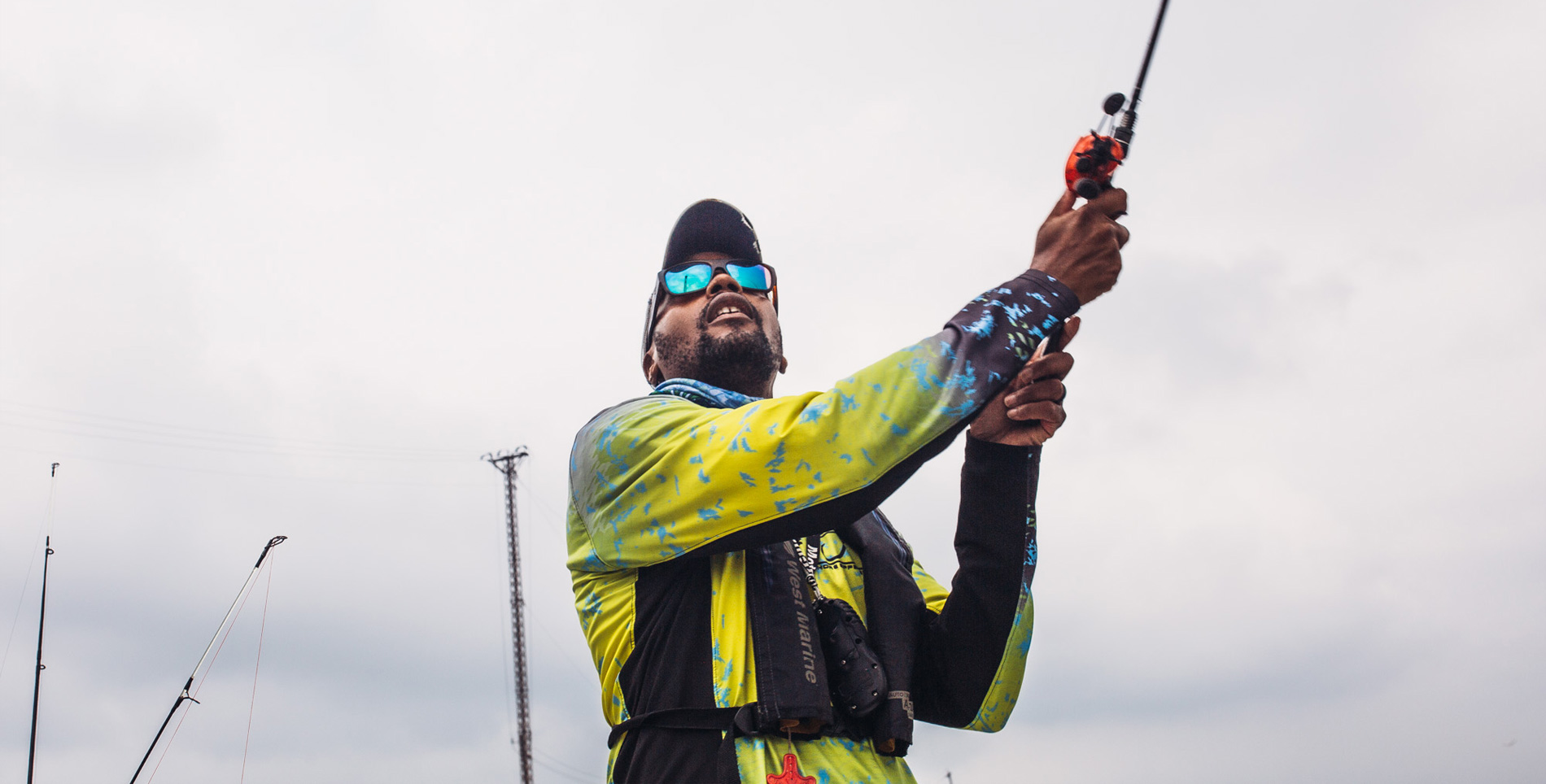

Our comments section is for members only.
Join today to gain exclusive access.